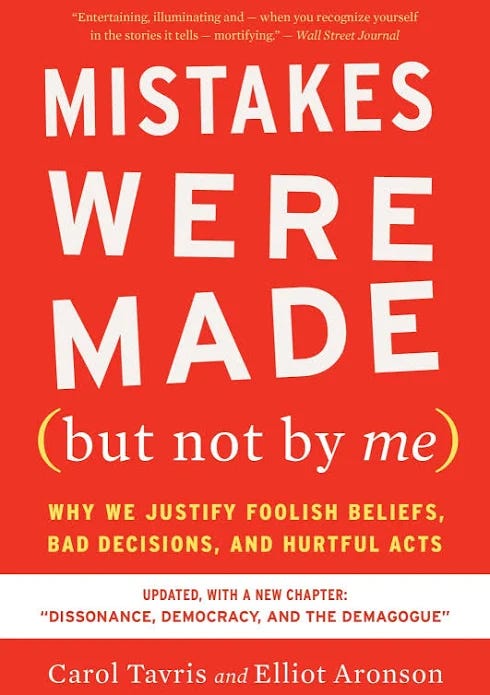I cannot speak highly enough about Carol Tavris—her work, her grace, her rhetoric. I found her seminal book Mistakes Were Made (But Not By Me) so instructive—not just because it helped me understand the difference between self-justification and lying, but because she shared examples, however rare, of those who did the wrong thing in the name of the doing the right thing, and finally, eventually, admitted their mistakes and attempted to make amends.
As clinics have been shutting down, and in the aftermath of the Skrmetti Supreme Court ruling, I wanted to talk to Carol about possible exit ramps for clinicians—and why some will never take them, no matter how solidly built said ramps may be.
Carol’s bio: Carol Tavris earned her Ph.D. in social psychology from the University of Michigan and went on to a career as a science writer, lecturer, and educator, with a focus on gender, scientific literacy, and critical thinking (this has been an uphill battle). She is coauthor, with Elliot Aronson, of Mistakes Were Made (But Not by Me), on the psychology of self-justification—why people stay on a path or hold onto a belief long past its expiration date; and, with Avrum Bluming, Estrogen Matters: Why taking hormones in menopause can improve and lengthen women’s lives—without raising the risk of breast cancer. Her earlier books include Anger: The misunderstood emotion and The Mismeasure of Woman. Carol has written hundreds of articles, op-eds, and book reviews on topics of psychological science and given distinguished lectureships, workshops, and keynote addresses to professional and general audiences around the world. A Fellow of the Association for Psychological Science, she has received numerous awards for her efforts to promote science, skepticism, and gender equality.











